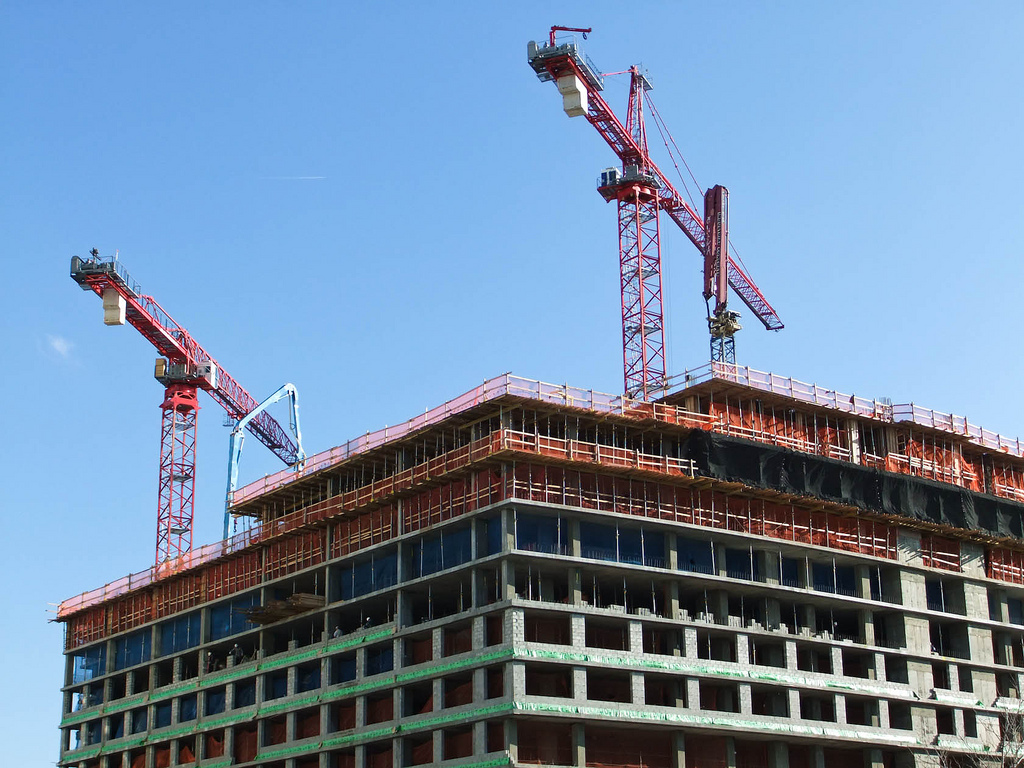The nonresidential construction sector continues at a steady pace despite a slight decline, according to the FMI Nonresidential Construction Index Report (NRCI) for Q3 2015. The index reflects the observations of a sample of the nation's construction industry executives.
FMI’s NRCI for Q3 2015 dropped 1.3 points to 63.6 from the previous reading of 64.9 in Q2. While the NRCI component for the overall economy dropped 6.3 points to 70.6 points this quarter, which is down from its peak, this component still indicates that panelists remain bullish about the economy.
Similarly, indicators for the economies where panelists do the most business stood at 73.3, indicating a strong outlook despite a slight 3.4 points slip from last quarter.
Highlights from the NRCI point to diverse forces driving the industry as we enter the last quarter of the year:
- Panelists’ Construction Business. Panelists’ views on their businesses are solidly positive with little changed from the last quarter.
- Nonresidential Building Construction Market. Although the nonresidential building construction market where panelists do business slipped 1.4 points to 75.0, this NRCI component remains in the optimistic range.
- Expected Change in Backlog. The measure of expected change in backlog dropped 3.1 points this quarter to reach 68.8, while current backlog remains at a solid 10 months.
- Cost of Construction Materials and Labor. The cost of labor continues to rise, though not greatly changed from the last quarter, at 12.5. Materials costs continue to be high, but slightly lower than last quarter. Both labor and material costs act to hold down the overall NRCI as costs increase.
- Productivity Low. The productivity component stands at 47.6, the lowest since 2008. Executives surveyed report difficulties in maintaining productivity while squeezed by rising material and labor costs.
International Debt Impacts
The NRCI Q3 report tallies executives’ opinions on the potential impact of the Greek debt crisis on their businesses. A third of respondents indicated no immediate or long-term impact was likely for their businesses, 25% were unsure and only 2% surveyed expected they would have to adjust their strategic plans to deal with the uncertain economy.
Business Changes Since Recession
All sectors within the construction industry continue their recovery since the financial crisis, as companies make adjustments to their businesses in the intervening recession. The NRCI Q3 report summarizes how business adapted during the recession. Among the strategies employed, greater selectivity regarding projects and clients tops the list, followed closely by greater use of technology for their businesses to drive productivity, stronger risk management, heightened productivity, and incorporating global geopolitical and economic conditions in decision making.
The full report is available here.
Related Stories
| Aug 11, 2010
Reed Construction Data files corporate espionage lawsuit against McGraw-Hill Construction Dodge
Reed Construction Data (RCD), a leading construction information provider and a wholly-owned subsidiary of Reed Elsevier (NYSE:RUK, NYSE:ENL), today filed suit in federal court against McGraw-Hill Construction Dodge, a unit of The McGraw-Hill Companies, Inc. (NYSE:MHP). The suit charges that Dodge has unlawfully accessed confidential and trade secret information from RCD since 2002 by using a series of fake companies to pose as RCD customers.
| Aug 11, 2010
NAVFAC releases guidelines for sustainable reconstruction of Navy facilities
The guidelines provide specific guidance for installation commanders, assessment teams, estimators, programmers and building designers for identifying the sustainable opportunities, synergies, strategies, features and benefits for improving installations following a disaster instead of simply repairing or replacing them as they were prior to the disaster.
| Aug 11, 2010
Construction employment shrinks in 319 of the nation's 336 largest metro areas in July, continuing months-long slide
Construction workers in communities across the country continued to suffer extreme job losses this July according to a new analysis of metropolitan area employment data from the Bureau of Labor Statistics released today by the Associated General Contractors of America. That analysis found construction employment declined in 319 of the nation’s largest communities while only 11 areas saw increases and six saw no change in construction employment between July 2008 and July 2009.
| Aug 11, 2010
Green consultant guarantees LEED certification or your money back
With cities mandating LEED (Leadership in Energy and Environmental Design) certification for public, and even private, buildings in growing numbers, an Atlanta-based sustainability consulting firm is hoping to ease anxieties over meeting those goals with the industry’s first Green Guaranteed.
| Aug 11, 2010
Skanska, Turner most active in U.S. hotel construction, according to BD+C's Giants 300 report
A ranking of the Top 50 Hotel Contractors based on Building Design+Construction's 2009 Giants 300 survey. For more Giants 300 rankings, visit http://www.BDCnetwork.com/Giants







